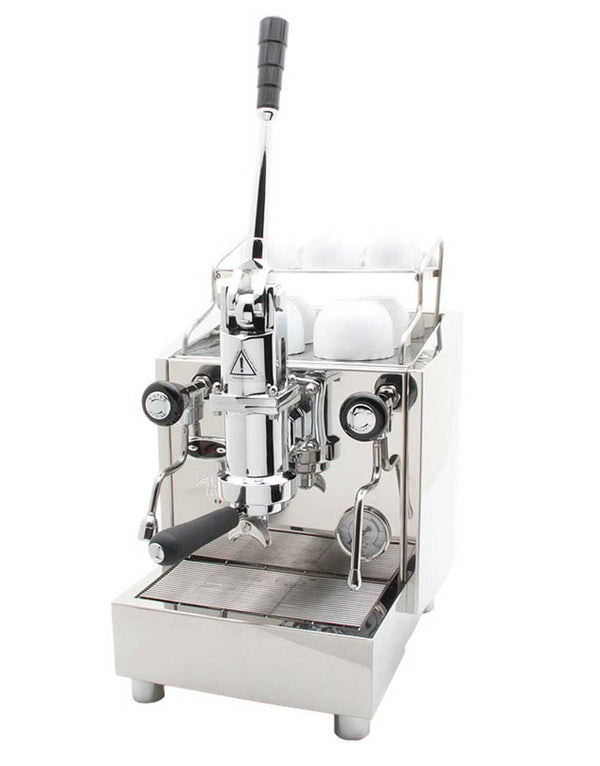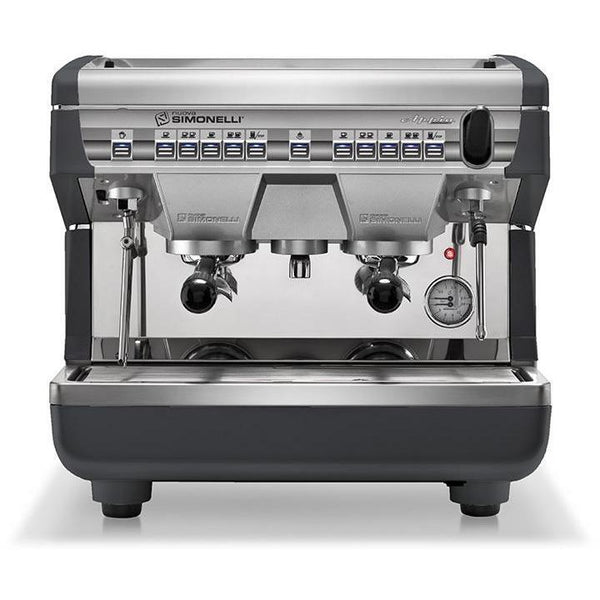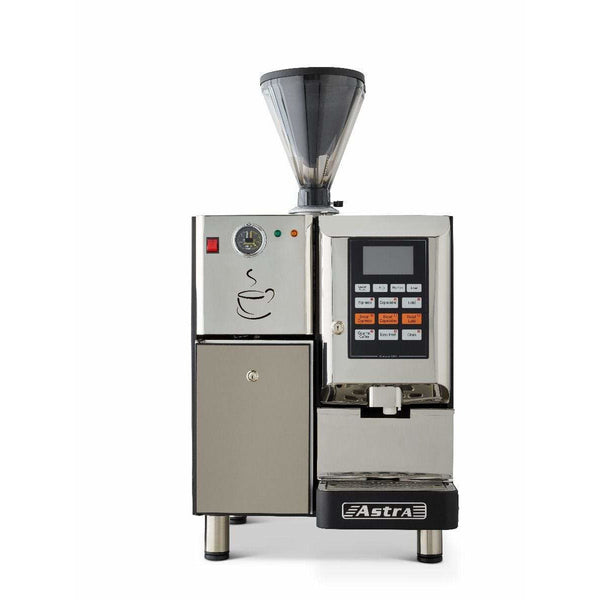Espresso machines can be classified into four main types: manual lever, semi-automatic, automatic, and super-automatic. Each type offers a different level of control over the brewing process, impacting both the quality and consistency of the final product. Semi-automatic machines give baristas more hands-on control, allowing them to fine-tune various aspects of the brewing process.
On the other hand, automatic machines often feature pre-programmed settings, streamlining the process and providing a more consistent output. Super-automatic machines are the most advanced, requiring minimal manual input as they grind, tamp, and extract the espresso shot at the push of a button.
Key Takeaways
- Commercial espresso machines come in four main types: manual lever, semi-automatic, automatic, and super-automatic
- The level of control over the brewing process varies among the types, impacting the espresso's consistency and quality.
- Choosing the right commercial espresso machine depends on individual business needs and preferences.
Types of Commercial Espresso Machines
Manual Lever Espresso Machines
Manual lever espresso machines are a traditional and classic option for making espresso. These machines require the barista to pull a lever to manually control the pressure and water flow during extraction. This allows for a highly customizable espresso, but it also requires skill and practice to perfect. Some key features of manual lever machines include:
- Hands-on control of extraction
- High level of customization
- Requires skilled barista
Semi-Automatic Espresso Machines
Semi-automatic espresso machines offer a balance between manual control and automation. The barista starts and stops the water flow, but the machine regulates the pressure. This type of machine is popular in many commercial settings, as they provide consistent results while still allowing for some customization. Key aspects of semi-automatic machines:
- Operator-controlled water flow
- Consistent pressure
- Some level of customization
Automatic Espresso Machines or Bean to Cup
Automatic espresso machines, often referred to as "bean to cup" machines, take care of the entire brewing process, from grinding the beans to extracting the espresso. They are designed for convenience and ease of use, making them ideal for businesses with high-volume demands or less-experienced baristas. Key features of automatic machines:
- Fully automated brewing process
- Consistent results
- Minimal skill required from barista
Super-Automatic Espresso Machines
Super-automatic espresso machines build upon the convenience of automatic machines by adding even more automated features. These machines include the ability to froth milk, making them an all-in-one solution for creating a range of espresso-based beverages. The main characteristics of super-automatic machines:
- Extensive automation, including milk frothing
- High level of consistency and speed
- Simplified beverage creation
Undercounter Espresso Machines
Undercounter espresso machines are designed to save space by placing the majority of the machine under the counter. These machines can be semi-automatic, automatic, or super-automatic. They feature a sleek design and help maintain a clean countertop. Key benefits of undercounter machines:
- Space-saving design
- Aesthetically pleasing
- Various levels of automation available
Factors to Consider When Choosing an Espresso Machine
Coffee Shop Needs
When choosing a commercial espresso machine for your coffee shop, it is essential to consider the volume of customers you are expecting. For high-volume establishments such as busy cafes and restaurants, a durable and efficient machine is crucial. Assess the quality of the coffee you wish to serve and ensure it aligns with the capabilities of the espresso machine you choose.
Budget and Maintenance
Consider your budget when selecting the right espresso machine for your business. Keep in mind that maintenance costs can add up over time. Look for machines with easy-to-replace parts and ensure that your budget accommodates both the initial cost and routine maintenance.
| Budget |
Maintenance |
| Affordable |
Low |
| Moderate |
Regular |
Skill Level of Baristas
The skill level of your baristas plays a significant role in choosing the right espresso machine. If your staff has limited experience, opt for a simpler machine with automated features to minimize human error. On the other hand, experienced baristas might prefer more control over the brewing process, making a semi-automatic or manual machine suitable.
- Manual-Lever: Most skilled baristas, requires expertise
- Semi-automatic: For skilled baristas
- Automatic: For variable skill levels
- Super-automatic: Minimal training required, suits less experienced staff
Overall, it is crucial to consider your coffee shop needs, budget and maintenance costs, and barista skill level when choosing the ideal commercial espresso machine for your business. These factors will contribute towards maximizing the quality, efficiency, and success of your coffee-serving establishment.
Wrap Up
For most coffee shop or restaurant owners, an automatic or bean to cup commercial espresso machine is likely the best option.
We're here via live chat or phone to answer all of your questions
Give us a call for all your commercial coffee and espresso needs: (888) 978-5224

Ask an Expert
Buy with Confidence. Contact Our Experts Today. M-F 10am - 6pm EST
📞 888-978-5224
Tony Barlow, with over a decade of experience in the coffee industry, is the go-to technical sales expert at Majesty Coffee. He's passionate about helping businesses find the right espresso equipment for their needs.





